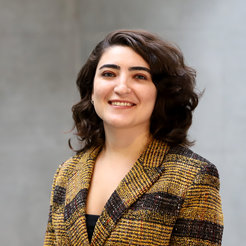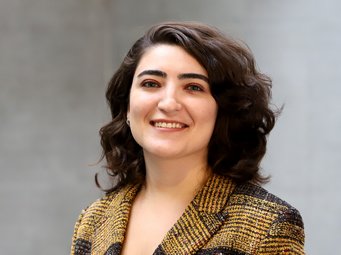
Turkish private law – Historical links, current legal questions, scholarly impulses
The political, economic and personal ties between Turkey – as well as its predecessor state, the Ottoman Empire – and the countries of Europe have a long history. Today, Turkey is one of the European Union’s largest trading partners. For legal practice in Germany and the EU, Turkish law stands as one of the most relevant foreign legal systems. With this significance in mind, the Max Planck Institute for Comparative and International Private Law has created a special platform dedicated to researching legal developments in Turkey.
The Institute has for many years cultivated an intensive exchange with Turkish legal scholars and law practitioners. In 1986 the Institute hosted the inaugural meeting of the Deutsch-türkische Juristenvereinigung (German-Turkish Lawyers' Association), an entity with which the Institute has worked in close partnership ever since. From 2011 to 2018, the Institute maintained a Turkey desk, which prepared expert opinions for German courts on issues of Turkish law. Most recently, in 2021, the Institute established a Centre of Expertise dedicated specifically to Turkish law.

„Turkish law is of great theoretical interest for the increasingly pluralistic body of global law. Not only is Turkey located between Europe and Asia and also the MENA region, Turkey must also create an internal balance between a Western secular model of law and a predominantly Muslim population.“
– Institute Director Ralf Michaels –
“The new Centre of Expertise, founded sixty years after the initiation of the labour recruiting agreement between Germany and Turkey, is intended to meet practical and theoretical needs,” says Institute Director Ralf Michaels. “Given that the vast majority of Turkish nationals residing in the EU live in Germany, it is of great practical importance to thoughtfully monitor the developments particuarly in Turkey's private and commercial law and to engage in international scholarly exchange. Moreover, Turkish law is of great theoretical interest for the increasingly pluralistic body of global law. Not only is Turkey located between Europe and Asia and also the MENA region, Turkey must also create an internal balance between a Western secular model of law and a predominantly Muslim population.”

„Even though progress in the accession negotiations has not been very substantial in recent years, Turkey remains a candidate for EU accession. For this reason alone, developments in Turkish law hold a certain importance for Europe.“
– Biset Sena Güneş, Head of the Centre of Expertise on Turkey –
The Centre of Expertise is headed by a young legal scholar who, after studying in Istanbul and London, completed her doctorate at the University of Regensburg with a comparative law dissertation on the subject of international inheritance law. Biset Sena Güneş has been a research fellow at the Institute since 2020. Prior to that, she worked as a research assistant at Yildirim Beyazit University in Ankara and also qualified as a lawyer, notary, and mediator in Turkey.
“Even though progress in the accession negotiations has not been very substantial in recent years, Turkey remains a candidate for EU accession. For this reason alone, developments in Turkish law hold a certain importance for Europe. Of course, the same applies in reverse: modern Turkish law has absorbed many influences from the European arena, especially from Germany, France, Italy, Austria, and Switzerland”, says Güneş. In addition to continuing the Institute’s preparation of expert opinions, she is planning projects, events, and publications that will deepen the international legal dialogue with Turkish lawyers and legal scholars.
On 24 January 2022 the Centre of Expertise will commence an English- and German-language seminar series addressing a variety of issues currently encountered in Turkish law. The sixty minute seminars, to be initiallly conducted as online events, will comprise a roughly thirty minute lecture that is followed by questions and dicussion. The seminar series will be kicked off by Başak Baysal, Professor of Civil Law and Dean of the Law Faculty at the Kadir Has University of Istanbul, who will speak on “The Role of the Judge under the Turkish Code of Obligations”.
Header image: © istock / tunart
Portraits Ralf Michaels and Biset Sena Güneş: © Max Planck Institute for comparative and international Private Law / Johanna Detering













